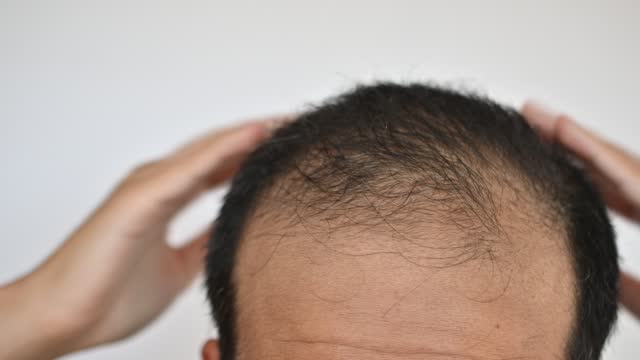
Hair loss, a common concern that affects both men and women, can be a source of significant distress and impact one’s self-esteem. While hereditary factors play a predominant role, a multitude of other contributors can influence hair growth and density. Understanding these factors is crucial for addressing hair loss effectively.
Genetics: The Predisposing Factor
Genetics plays a pivotal role in determining hair loss susceptibility. Androgenetic alopecia, the most prevalent form of hair loss, is strongly linked to inherited genes. These genes influence the sensitivity of hair follicles to dihydrotestosterone (DHT), a hormone that can shorten the hair growth cycle and lead to thinning hair. In men, androgenetic alopecia manifests as receding hairlines and thinning on the crown of the head, while in women, it typically involves a diffuse thinning along the scalp’s parting line.
Hormonal Fluctuations: A Delicate Balance
Hormonal imbalances can significantly impact hair growth. In women, high levels of androgens, such as testosterone, can contribute to female pattern hair loss. Polycystic ovary syndrome (PCOS), a hormonal disorder characterized by excess androgen production, is often associated with hair loss. Additionally, changes in estrogen levels during pregnancy, menopause, and thyroid disorders can also trigger hair loss.
Medical Conditions: Unseen Influences
Certain medical conditions can indirectly contribute to hair loss. Autoimmune diseases like alopecia areata, in which the immune system attacks hair follicles, can cause patchy hair loss. Scalp conditions such as tinea capitis (fungal infection) and psoriasis can also lead to hair loss due to inflammation and damage to hair follicles. Additionally, certain medications, particularly those used for cancer treatment, can cause temporary hair loss as a side effect.
Nutritional Deficiencies: Fueling Hair Growth
A healthy diet plays a vital role in maintaining hair growth and overall scalp health. Deficiencies in essential nutrients, such as iron, zinc, and biotin, can impair hair growth and lead to hair loss. Adequate protein intake is also crucial, as hair is primarily composed of protein.
Stress and Lifestyle Factors: The Invisible Burden
Chronic stress can disrupt hormonal balance and contribute to hair loss. Additionally, excessive styling practices like tight braids, hot styling tools, and harsh chemical treatments can damage hair follicles and lead to hair breakage and loss.
Addressing Hair Loss: A Multifaceted Approach
Addressing hair loss effectively requires a comprehensive approach that considers the underlying cause(s). For genetic hair loss, topical medications like minoxidil or finasteride can help slow hair loss and promote regrowth. In cases of hormonal imbalances, underlying medical conditions should be addressed and hormone therapy may be considered. For nutritional deficiencies, dietary changes or supplements can be beneficial. Additionally, managing stress and adopting healthy hair care practices can help minimize hair loss.
Conclusion: Embracing a Holistic Approach
Hair loss, while a common concern, can be effectively managed with a personalized approach that addresses the underlying cause(s). Consulting with a dermatologist or trichologist can provide expert guidance and tailored treatment options. Embracing a healthy lifestyle, including a balanced diet, stress management, and gentle hair care practices, can further support hair growth and overall scalp health.






